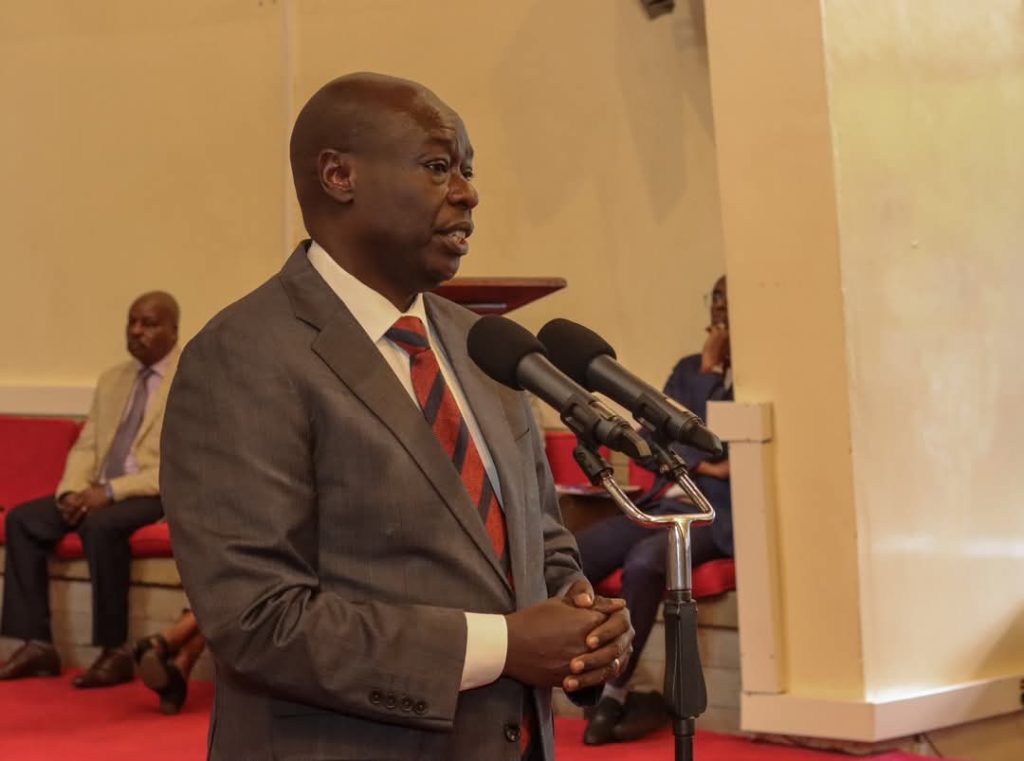In a landmark ruling that has sent shockwaves across the political landscape, the Court of Appeal has declared that Deputy Chief Justice Philomena Mwilu acted unconstitutionally in constituting the bench that heard and determined the case that led to the impeachment of former Deputy President Rigathi Gachagua. According to the judgment, only the Chief Justice has the constitutional mandate to form such a bench, rendering the previous ruling and its outcomes invalid.
For Rigathi Gachagua, this decision marks a significant legal and political victory. His impeachment was not only a dramatic moment in Kenya’s governance history but also a major reshuffle in the country’s leadership. Now, with the court nullifying the bench’s legitimacy, questions arise over the legality of the impeachment and the subsequent swearing-in of the current Deputy President, Kithure Kindiki.
But while Gachagua’s camp may celebrate, observers are already asking: is this ruling a genuine triumph of constitutionalism—or a political trap carefully engineered ahead of the 2027 general elections?
A Political Re-entry Plan?
The timing of the ruling raises eyebrows. With the 2027 elections gradually taking shape, the court’s decision may offer Gachagua a political lifeline. Could this be a strategic move by certain political forces to reintroduce him into the political arena—either as a running mate or even a presidential contender? His reemergence could attract fresh dynamics. Just recently, Rigathi Gachagua confirmed that he will run for the presidency, which many people believe would affect the opposition. If several of them run for the presidency, they may divide the votes and make it easier for the current government to be re-elected.
Some analysts argue that the ruling might be part of a broader scheme to consolidate support for the current administration. By appearing to correct a constitutional wrong, the government—or elements within it—may be trying to win the former Deputy President back to the government, thereby boosting its re-election chances. Such a move could be aimed at pacifying regions that felt alienated after his removal, ensuring a smoother path to a second term.
Constitutional Crisis in the Making?
Perhaps the most pressing issue now is the constitutional dilemma posed by this ruling. Kithure Kindiki has already been sworn in and is serving as the Deputy President. The Kenyan Constitution does not envision a scenario where two individuals lay claim to the same office. If Gachagua’s impeachment is declared invalid, does that automatically reinstate him as Deputy President?
This ambiguity could plunge the country into a legal and constitutional quagmire. Will the Supreme Court be forced to interpret the consequences of the ruling on the current officeholder? Could Parliament be required to deliberate on which deputy president is legitimate? Or could this development trigger calls for constitutional amendments?
There is also the human and political cost. Kithure Kindiki, known for his loyalty and calm demeanor, may find himself in a precarious position—serving in an office now potentially clouded by legal doubt. His future could depend not just on the courts, but on the complex web of political alliances that will be tested in the coming months.
What Next?
The Court of Appeal ruling is undoubtedly a turning point. But whether it serves as a genuine effort to uphold constitutionalism or is part of a sophisticated political chess game remains to be seen. What is clear is that the decision has opened a Pandora’s box of legal, political, and constitutional questions that could shape the 2027 election—and Kenya’s political stability in the years to come.



